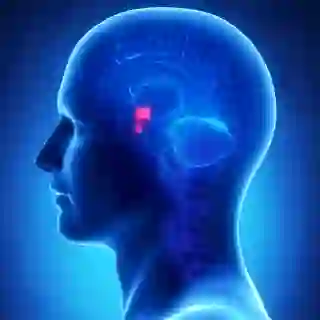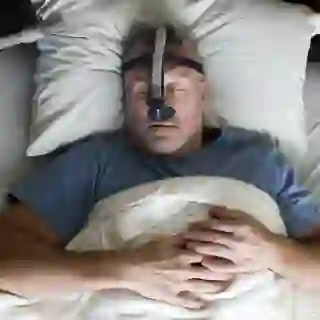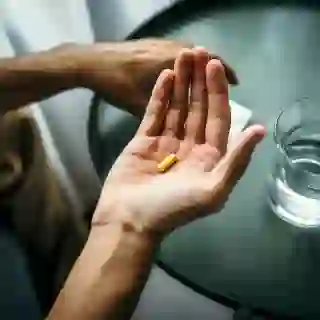Testosterone is the hormone responsible for a man’s muscle mass and strength, the hair on his chest, his sex drive, and much more. Produced in the testicles, testosterone also plays a big role in mood, bone health, and energy levels. If your testosterone drops below normal or plummets to very low production—the medical term for this is hypogonadism—it can affect your quality of life. Just a few symptoms: You lose interest in sex, you feel fatigued and depressed, and your strength diminishes, too. Let’s take a look at why this happens.
Low T Ups With Age, But Don't Necessarily Blame It
Normally, your testosterone level will measure anywhere from about 300 to about 1,000 nanograms per deciliter (ng/dL). If it dips below 300 ng/dL, you have low testosterone, or “low T.” Starting around age 30, a man’s testosterone level starts to decline slowly. Because of this, it was once thought that aging played a key role in low T. That may be wrong. “Healthy men will probably maintain their testosterone levels throughout life, or [testosterone] decline will not be significant enough to go below the normal level,” says urologist Ranjith Ramasamy, M.D., of University of Miami Health System in Florida.
Chronic Disease Is Linked to Low T
Still, as men get older, they become more likely to develop a range of chronic conditions, such as diabetes, obesity, high cholesterol, and heart disease, and they also tend to become less physically active. “Men who do have those things will likely develop low testosterone with aging,” says Dr. Ramasamy. Why do these health issues have this impact? “That’s the million-dollar question,” says endocrinologist Luma Ghalib, M.D., of the Ohio State University Wexner Medical Center in Columbus. “There are multiple layers to how lifestyle and comorbid diseases can affect testosterone levels.”
Obesity Can Lower Testosterone, Increase Estrogen
When you carry too much weight, the excess fat in your body causes a hormone called aromatase to convert testosterone into estradiol, a female hormone. The result: Your testosterone levels drop, while your levels of estrogen, another female hormone, rise. “That’s why obese men have decreased libido and decreased sexual function,” says Dr. Ghalib. That, in turn, can cause a drop in your energy level. You become fatigued and less able to exercise, so you gain more weight, and your T level drops even more. “It’s a vicious circle,” she adds.
Sedentary Lifestyle Can Lead to Low T
It gets even more complicated, says Dr. Ramasamy. “Obesity typically goes hand in hand with a sedentary lifestyle, and this leads to a lack of brain stimulation of the hormones necessary for testosterone production.” What’s the brain got to do with it? Your pituitary gland, which is attached to a part of your brain called the hypothalamus, tells your testicles to produce testosterone. If it doesn’t send out the message (in the form of other hormones), testosterone production dwindles. (Things can also go wrong with your pituitary gland, but this is rare. We’ll share those details momentarily, after covering more common causes.)
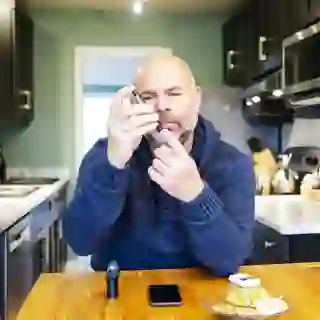
High Blood Sugar a Common Low T Culprit
Poorly managed type 2 diabetes also can contribute to low T. As Dr. Ramasamy points out, people with this disorder tend to be obese and less physically active. There’s also a link between high blood sugar levels caused by diabetes and lower levels of testosterone. In fact, recent research suggests that treating low T also improves the way the body handles insulin. “If diabetic men are not treated for low testosterone, their diabetes treatment will not be as effective as it could be,” says Dr. Ramasamy. The American Diabetes Association estimates that diabetes double’s a man’s risk of low T.
Sleep Apnea and Low T Are Double Trouble
Sleep problems also increase the risk of low T. Obstructive sleep apnea (OSA) is one example. “Sleep apnea can lead to more obesity and worsening hypogonadism,” says Dr. Ghalib. And, she adds, treatment for low T will be less effective if you don’t treat sleep apnea first. According to a 2018 scientific review, the poor sleep caused by OSA leads to a drop in testosterone levels because it disrupts the hormone-producing partnership between the pituitary gland and the testicles. Another complicating factor: Many people with OSA also are obese. The vicious circle continues.
Illegal Steroids Impact Testosterone
Dr. Ramasamy points to anabolic steroids, synthetic versions of testosterone that he says are the biggest cause of testosterone deficiency. Despite being illegal, these performance-enhancing drugs often are used by young, healthy men who want to build muscle and lose fat quickly. It’s a big risk. Your body stops making testosterone while you take them. More unsettling? “After you stop taking them, your body may not start making natural testosterone again,” says Dr. Ramasamy. Dr. Ghalib says many men don’t realize their muscle-building protein supplements contain anabolic steroids.
Antidepressant Medications Can Cause Low T, Too
But it’s not only illicit drugs that cause a drop in testosterone. SSRIs, a commonly prescribed type of antidepressant that includes Prozac (fluoxetine), Celexa (citalopram), and Paxil (paroxetine), interferes with some of the brain chemicals necessary to make testosterone, explains Dr. Ramasamy. In a 2017 study of six such antidepressants, researchers found that all of them led to lower levels of testosterone. “If you have symptoms of low testosterone while taking an SSRI, talk to your doctor,” he advises.
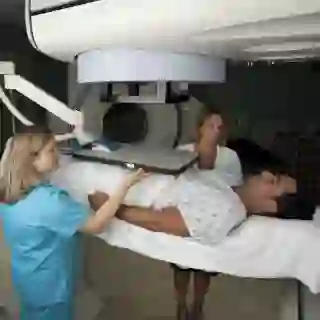
Cancer Treatments Can Affect Testosterone Production
This is particularly true of hormone therapy for prostate cancer, which shuts down testosterone production to slow the progression of the cancer. Even after treatment, about 40% of men do not fully regain their previous testosterone level, says Dr. Ramasamy. Chemotherapy and radiation for colon cancer and other cancers also may impact testosterone. But there’s good news: “Though some chemo and radiation can affect the testicles or the brain and lead to more permanent hypogonadism, the majority of cases that occur during illness are temporary,” says Dr. Ghalib.
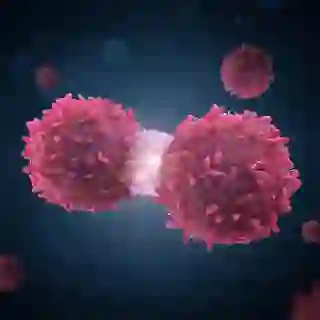
Tumors in or Near the Pituitary Gland Lead to Low T
Again, this is pretty rare—but it does sometimes occur. “The pituitary gland is the master gland that controls most of our hormones, including testosterone,” says Dr. Ghalib. “And the partial or complete destruction of the pituitary gland leads to significant hypogonadism.” While most of these tumors are not cancer, she says, they can cause your testosterone level to drop to zero. Surgery to remove such tumors also can impact your testosterone levels dramatically. That’s a rare complication for small tumors, but may be unavoidable for large pituitary tumors, according to the American Cancer Society.
Damage and Other Disorders Also Cause Low T
Your testicles can be damaged and your testosterone production affected by other causes, says Dr. Ghalib, such as infections and traumatic injury. Rare chromosome disorders also impact testosterone. One example is Klinefelter syndrome. Boys born with this condition will have smaller than normal testicles and produce smaller amounts of testosterone. It is one of the most common sex chromosome disorders and effects about one in 500 to 1,000 newborn boys, according to the National Institutes of Health. No matter the cause of your low T, ask your doctor if lifestyle changes and/or treatments can increase your levels.
Low Testosterone: Cleveland Clinic. (2018.) “Low Testosterone (Male Hypogonadism).” https://my.clevelandclinic.org/health/diseases/15603-low-testosterone-male-hypogonadism
American Urological Association: (n.d.) “What is Low Testosterone?” https://www.urologyhealth.org/urology-a-z/l/low-testosterone




